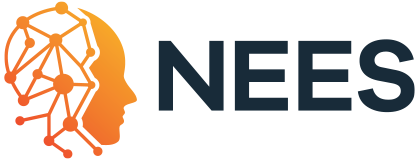Researchers from the Center are developing several technological solutions in partnership with MEC, among them, a preventive alert system to prevent school evasion and an application for digitization and automated correction of students’ handwritten texts
How to prevent school dropout and evasion in Brazilian basic education, issues which were aggravated during the pandemic? Which strategies can be created to recover students’ learning, which has been so compromised in recent times?
Developing technological solutions that answer questions like these is one of NEES’ goals. On May 19 and 20, the leaders of the Center were in Brasília to participate in the I Forum for Discussion of Results of Diagnostic and Formative Evaluations (I Fórum de Discussão de Resultados das Avaliações Diagnósticas e Formativas), and met with the Minister of Education, Victor Godoy.
The event was held by the Ministry of Education (MEC) in partnership with the Federal University of Alagoas (UFAL), the Federal University of Ceará (UFC), and the Federal University of Juiz de Fora (UFJF). The initiative preceded the publication of the decree that created the National Policy for the Recovery of Learning in Basic Education (Política Nacional para Recuperação das Aprendizagens na Educação Básica).
Published in the Union’s Official Gazette (DOU) on May 24, the policy aims to implement strategies, programs and actions for the recovery of learning and coping with school dropout and evasion in basic education. With the pandemic, the number of children and adolescents out of school increased by 171%, according to a survey conducted by the Brazilian Institute of Geography and Statistics (IBGE).
Given this reality, the National Policy for the Recovery of Learning in Basic Education has as its main goals: to increase school attendance and reduce dropout and evasion rates; develop teaching-learning strategies for improving performance and school promotion; reduce age-grade disparity by monitoring school trajectory; promote the coordination of actions to cope with school dropout and recovery of learning; encourage training for the pedagogical use of digital content.
In this context, NESS is developing several technological solutions in partnership with MEC, including:
- a preventive alert system to avoid school evasion;
- an application for the digitalization and automated correction of students’ handwritten texts;
- a solution to promote customized learning and stimulate learning recovery;
- a community for sharing open educational resources and a repository of good teaching-learning-evaluation practices.
The leaders of NEES hope, through these projects, to positively impact the lives of more than 48 million Brazilian students enrolled in basic education, which includes early childhood education, primary and secondary education, professional education, youth and adult education, and special education.
Text: Denise Casatti – NEES/UFAL Communication Department
With information from the Social Communication Department of MEC
Learn more Decree establishing the National Policy for the Recovery of Learning in Basic Education MEC conducts the I Forum for Discussion of Results of Diagnostic and Formative Evaluations Federal Government launches National Policy for the Recovery of Learning in Basic Education Brazil presents to the world the National Policy for the Recovery of Learning in Basic Education





